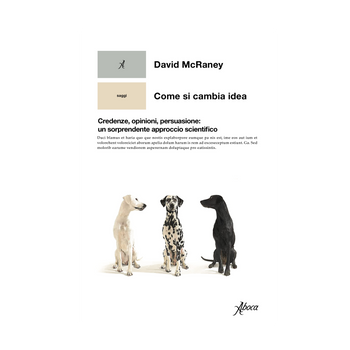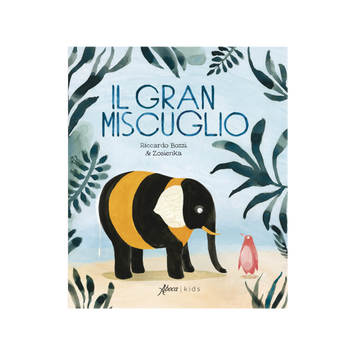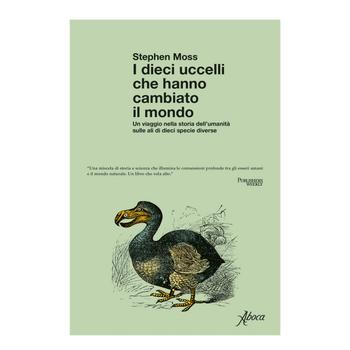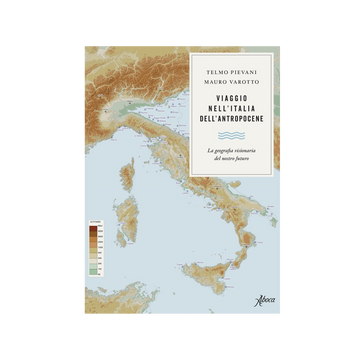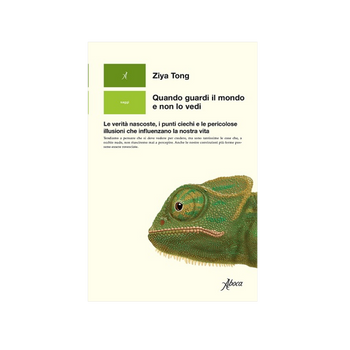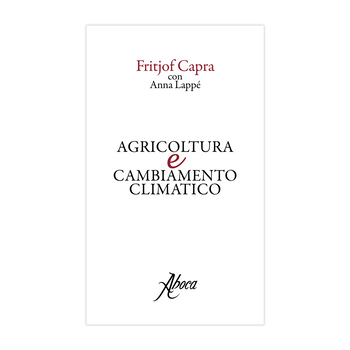You have no items in your shopping cart.
Ambiente e salute Ambiente e salute
Conoscere i fattori di rischio per prevenire le malattie infettive e cronico-degenerative Conoscere i fattori di rischio per prevenire le malattie infettive e cronico-degenerative
Edited by Maria Grazia Petronio Edited by Maria Grazia Petronio
€24,00
Availability:
In Stock
Sku: LIBAMBSA
ISBN/EAN: 9788855230438
Every year, the leading environmental and health agencies, together with the most important scientific journals, emphasise the very close correlation between public health and environmental changes, largely caused by human activities: climate change, pollution (particularly air pollution), worsening water quality, increasing amounts of waste and dangers arising from the chemicals used in agriculture. Most of the time we have neither knowledge nor awareness of the risks that are lurking in the air we breathe, in the water we drink and in the food we eat, factors that may have effects even decades after exposure.
Since chronic degenerative diseases are correlated to environmental factors, they are well suited to preventive interventions. However, in our industrialised society, even illness has become a source of profit, resulting in the so-called medicalisation of health, a phenomenon that reduces prevention and impedes the citizen's ability to understand the problem and tackle it independently.
Through good daily practices, each one of us can reduce the risk of contracting certain diseases while also contributing to improving the quality of the environment in which others live.
But good individual practices, though helpful and necessary, are not enough. Environmental problems are on a global scale and require structural interventions that we cannot achieve alone: there is a need for a real shift in paradigm that must take place in the political sphere, creating the circular economy that many people talk about, yet which requires a balanced and sustainable integration with the output of natural ecosystems.
In nature, all of the energy used is solar and matter is completely recycled, without the production of waste or pollutants and without combustion. This is thanks to the relationships between the different organisms found in the various ecosystems, and this should be the benchmark economic model for human production systems.
Maria Grazia Petronio is a specialist in Hygiene, Epidemiology and Public Health, as well as in Nephrology. She is the director of the UOC Igiene Sanità Pubblica at the Tuscan Public Health Centre (Usl) and is also an adjunct professor for the Specialised School in Hygiene and Preventive Medicine at the University of Pisa. She is a member of the Technical Commission for Verification of Environmental Impact VIA-VAS, established by the Italian Ministry of Environment, Land and Sea. She is president of the ISDE, Pisa.
ISDE, the International Society of Doctors for the Environment, was established in 1989 by a group of doctors who were aware that in order to ensure public health, it was first necessary for doctors to take care of the health of the environment in which we live. ISDE seeks to spread awareness of the connection between science, politics and ethics, paying particular attention to the problems of the unsustainability of unregulated economic growth that puts profit before health. To facilitate this process, ISDE has produced several documents that can help both committees and associations of citizens and politicians to make the right choices towards a more sustainable, inclusive and circular economy. www.isde.it
Every year, the leading environmental and health agencies, together with the most important scientific journals, emphasise the very close correlation between public health and environmental changes, largely caused by human activities: climate change, pollution (particularly air pollution), worsening water quality, increasing amounts of waste and dangers arising from the chemicals used in agriculture. Most of the time we have neither knowledge nor awareness of the risks that are lurking in the air we breathe, in the water we drink and in the food we eat, factors that may have effects even decades after exposure.
Since chronic degenerative diseases are correlated to environmental factors, they are well suited to preventive interventions. However, in our industrialised society, even illness has become a source of profit, resulting in the so-called medicalisation of health, a phenomenon that reduces prevention and impedes the citizen's ability to understand the problem and tackle it independently.
Through good daily practices, each one of us can reduce the risk of contracting certain diseases while also contributing to improving the quality of the environment in which others live.
But good individual practices, though helpful and necessary, are not enough. Environmental problems are on a global scale and require structural interventions that we cannot achieve alone: there is a need for a real shift in paradigm that must take place in the political sphere, creating the circular economy that many people talk about, yet which requires a balanced and sustainable integration with the output of natural ecosystems.
In nature, all of the energy used is solar and matter is completely recycled, without the production of waste or pollutants and without combustion. This is thanks to the relationships between the different organisms found in the various ecosystems, and this should be the benchmark economic model for human production systems.
Maria Grazia Petronio is a specialist in Hygiene, Epidemiology and Public Health, as well as in Nephrology. She is the director of the UOC Igiene Sanità Pubblica at the Tuscan Public Health Centre (Usl) and is also an adjunct professor for the Specialised School in Hygiene and Preventive Medicine at the University of Pisa. She is a member of the Technical Commission for Verification of Environmental Impact VIA-VAS, established by the Italian Ministry of Environment, Land and Sea. She is president of the ISDE, Pisa.
ISDE, the International Society of Doctors for the Environment, was established in 1989 by a group of doctors who were aware that in order to ensure public health, it was first necessary for doctors to take care of the health of the environment in which we live. ISDE seeks to spread awareness of the connection between science, politics and ethics, paying particular attention to the problems of the unsustainability of unregulated economic growth that puts profit before health. To facilitate this process, ISDE has produced several documents that can help both committees and associations of citizens and politicians to make the right choices towards a more sustainable, inclusive and circular economy. www.isde.it
Release date: 2020
Dimensions: cm 15,5 x 22
Pages 424
Release date: 2020
Dimensions: cm 15,5 x 22
Pages 424




